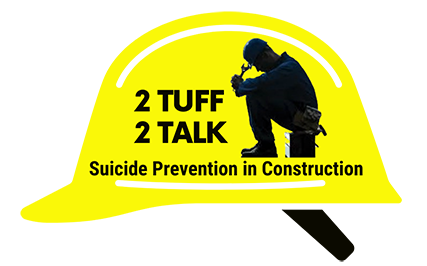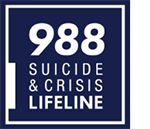So…you scanned a QR code and landed on this webpage. You are either struggling with something yourself, you know someone who is, or you were just curious what this is all about.
Fast Facts:
- 1 in 5 U.S. adults experience mental illness each year
- 1 in 20 U.S. adults experience serious mental illness each year
- 1 in 6 U.S. youth aged 6-17 experience a mental health disorder each year
- 50% of all lifetime mental illness begins by age 14, and 75% by age 24
- Suicide is the 2nd leading cause of death among people aged 10-14
When you call or text “988” you reach the “Lifeline.” This organization provides 24/7, free and confidential support for people in distress, prevention and crisis resources for you, or your loved ones. Please do not hesitate to call this number if you are having thoughts of hurting yourself or others.
Ask for help. Don’t be afraid to let your friends or family know what you need when they ask; they want to help. Thoughts of suicide can be scary, but when we talk about it, we can avoid devastating outcomes.
Don’t gamble with mental health. Keep the “chip” handy. Share them with your friends, kids, neighbors, classmates, and co-workers. It’s a safe bet that someone you work with, go to school with – or even live with – may be struggling. It’s an easy way to start a conversation or just hand it over to let someone know you care.
(If you’d like to request more chips, send a note to GEMSafetyOrders@RLGbuilds.com.)
Below is a list of free resources that may be helpful to you — as well as your friends, family members, co-workers or classmates.

Stronger Together.
Safer Together.
A Message from the Rudolph Libbe Group
As a general contractor, when we learned that "5x more construction workers will die by suicide than on a job site," it stopped us in our tracks.
Do we rely on the health and wellness of our associates to build successfully for our clients? Yes – we certainly do. But our reason for care goes far beyond this. Every single day, we work to keep our job sites safe so our associates can walk back off the site and go home to their families and friends. But we know that life off the job comes onto the site with our employees, and sometimes we all need a little help. The Rudolph Libbe Group is committed to total health.
We believe in being “Stronger Together. Safer Together.” We need to watch out for one another in all aspects. We are committed to training our associates to understand and watch for suicide warning signs. Regard for people is a core part of our culture.
If you work in the construction industry and are in need of mental health resources or training for your own work teams, please visit our industry partner, 2Tuff2Talk.
2Tuff2Talk helps construction workers and their families navigate mental health issues by educating front-line supervisors, providing resources, and guiding them through the roadblocks in the mental health system with a boots-on-the-ground approach.
Below are additional FREE resources to help with mental health, stress, sleep and more. Please check out the ones that seem relevant to you, and share them with others who may find them useful.
|
© 2026 Rudolph Libbe Group
All rights reserved | Privacy Policy











